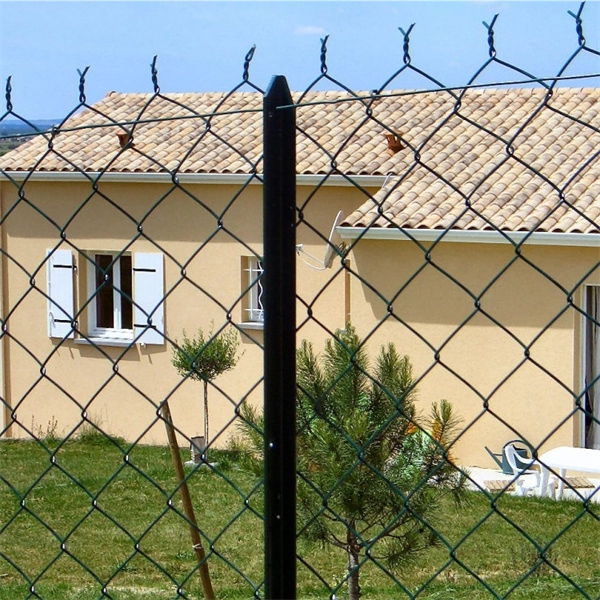ធ្នូ . 26, 2024 21:00 Back to list
Choosing the Best Wire for Durable Gabion Wall Construction
The Best Wire for Gabion Walls A Comprehensive Guide
Gabion walls have become increasingly popular in civil engineering and landscaping due to their versatility, sustainability, and aesthetic appeal. Constructed from wire mesh cages filled with rocks or stones, gabion walls serve various purposes, including erosion control, slope stabilization, and decorative landscaping features. However, the success and longevity of a gabion wall largely depend on the quality of the wire used to create the cages. In this article, we will explore the best wire options for gabion walls and factors you should consider for optimal performance.
Types of Wire for Gabion Walls
1. Galvanized Steel Wire
Galvanized steel wire is among the most common options for gabion cages. This type of wire is coated with a layer of zinc, which helps to protect it from corrosion. The durability of galvanized steel makes it ideal for use in wet conditions, where rusting could significantly undermine the structural integrity of the wall. The thickness of the wire typically used ranges from 2.0mm to 4.0mm, depending on the design requirements. Additionally, galvanized steel wire can be easily welded into various shapes and sizes, providing flexibility in design.
2. PVC Coated Wire
For those looking for enhanced corrosion resistance and aesthetic appeal, PVC-coated wire is an excellent choice. This wire is first made from galvanized steel and then coated in a layer of polyvinyl chloride (PVC). The PVC coating not only offers additional protection against environmental elements, but it also comes in a variety of colors, allowing for greater adaptability in design. While PVC-coated wire may be more expensive than regular galvanized wire, its lifespan and aesthetic benefits often justify the cost.
3. Stainless Steel Wire
For areas with extremely aggressive environmental conditions or where maximum longevity is required, stainless steel wire is the best option. Although it is the most costly among wire choices, stainless steel is impervious to rust and corrosion, making it a premier choice for gabion walls in coastal areas or regions with high salt concentrations. Its strength and durability make it an investment that can hold up for decades without significant maintenance.
best wire for gabion wall

Factors to Consider
When choosing the best wire for your gabion wall, it’s important to consider several key factors
1. Environmental Conditions Assess the environmental conditions of your project site. If the area is prone to heavy rain, flood, or has saline soil, stainless steel or PVC-coated wire may be necessary for enhanced durability.
2. Load Requirements Consider the load that the gabion wall will need to support. Heavier loads might require thicker wires or additional support structures.
3. Aesthetic Needs If the gabion wall is for decorative purposes, the choice of wire and its color can significantly affect the overall appearance. PVC-coated wires provide a broader range of color options, which can suit various landscape themes.
4. Budget Finally, budget constraints will guide your choice of wire. While stainless steel provides the best longevity and resistance, it comes at a premium cost. Balancing cost with performance is crucial for most projects.
Conclusion
Choosing the right wire for your gabion wall is crucial for ensuring its stability, aesthetics, and lifespan. Each type of wire has its own set of benefits and is suited for different conditions and applications. If you're looking for durability, galvanized steel wire remains a popular choice, while PVC-coated wire offers additional corrosion resistance and visual variety. For projects requiring maximum longevity, stainless steel wire is the gold standard. By considering environmental conditions, load requirements, aesthetic preferences, and budget, you can make an informed decision that meets your gabion wall's specific needs. Ultimately, investing in the right wire will contribute to the success and enduring stability of your gabion wall for years to come.
-
Installation Tips for Gabion Wire Baskets in Erosion Control Projects
NewsJul.21,2025
-
High-Quality Gabion Basket Barriers for Retaining Wall Systems
NewsJul.21,2025
-
Gabion Welded Wire Mesh Applications in Flood Prevention Systems
NewsJul.21,2025
-
Designing Aesthetic Gabion Wall River Bank
NewsJul.21,2025
-
Creative Garden Gabion Baskets Designs Blending Form and Function
NewsJul.21,2025
-
Cost-Effective Gabion Mesh Panels
NewsJul.21,2025
-
Understanding Load-Bearing Capacity of Gabion Boxes
NewsJul.17,2025






